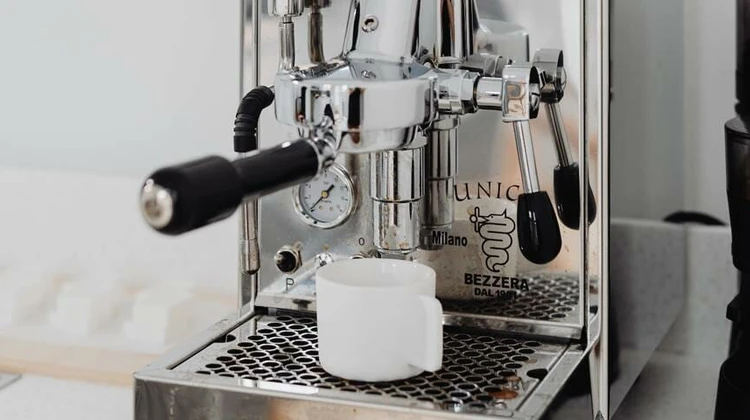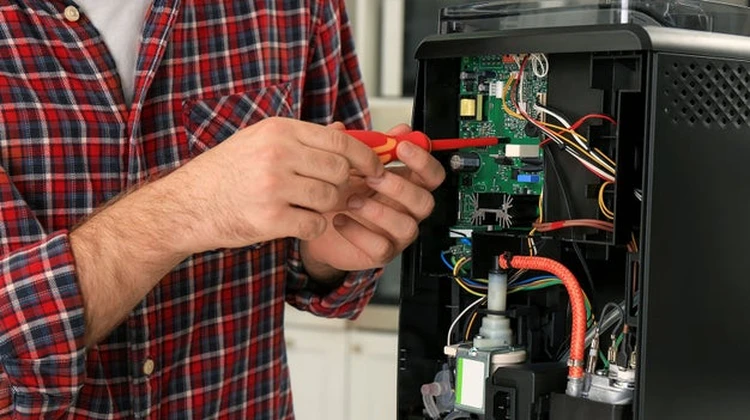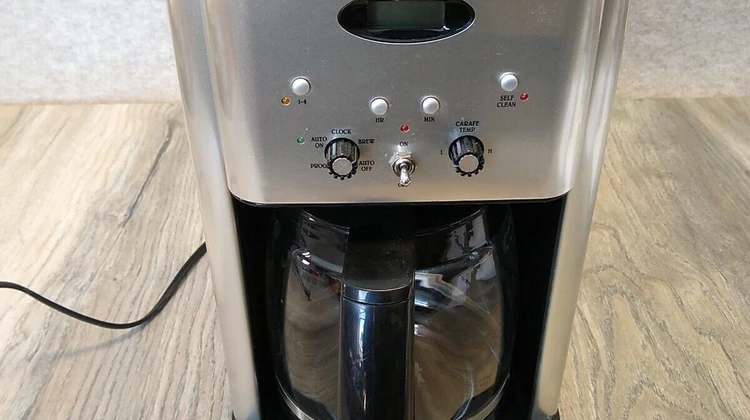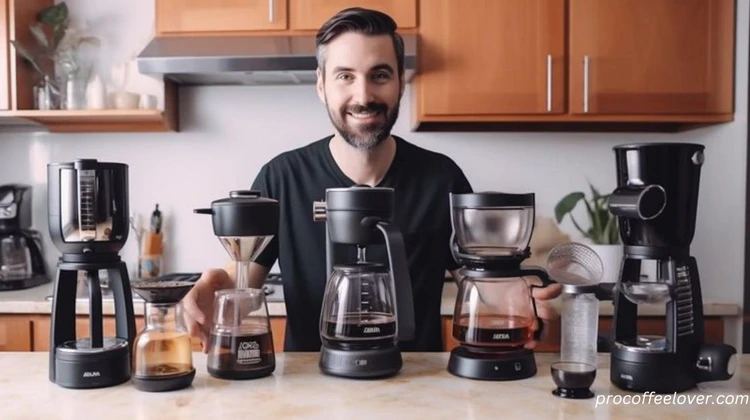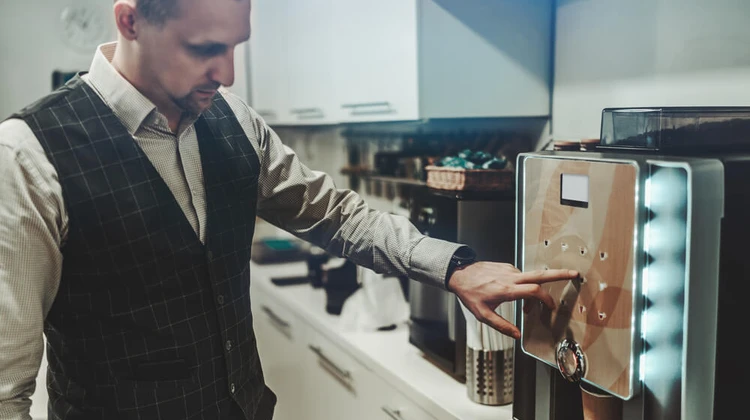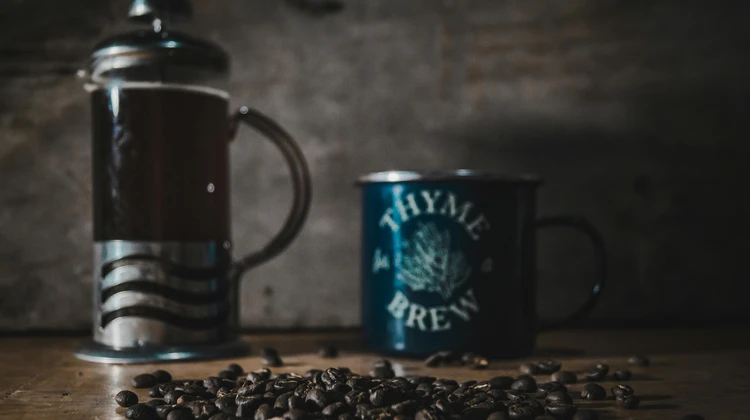Using distilled water in your coffee maker might seem like a good idea at first glance. After all, distilled water is pure and free from impurities. However, this very purity can actually be detrimental to your coffee maker and the quality of your brew. This topic is particularly relevant to homeowners, renters, and kitchen enthusiasts who want to ensure the longevity of their appliances and the best possible taste of their coffee.
Disclaimer: As an Amazon Associate, I earn commission from qualifying purchases.
What is Distilled Water?
Distilled water is a type of purified water that has undergone a process of distillation to remove minerals and impurities. The distillation process involves boiling water and then condensing the steam back into liquid form, leaving behind any dissolved solids. This results in water that is free from minerals, chemicals, and other contaminants.
The process of distillation is scientifically straightforward: water is heated to its boiling point, turning it into steam. This steam is then cooled and condensed back into water, leaving behind any impurities that were present in the original water source. This method ensures that the resulting water is pure and free from contaminants.
How Distilled Water Affects Coffee Makers
While distilled water is pure, it lacks the minerals that are essential for the proper functioning of a coffee maker. These minerals play a crucial role in maintaining the machine’s components and ensuring the quality of the brewed coffee. Without these minerals, several issues can arise.
One of the primary concerns is mineral deficiency. Coffee makers rely on the presence of certain minerals in water to function optimally. These minerals help to neutralize acidity, prevent corrosion, and maintain the overall health of the machine. When distilled water is used, the lack of minerals can lead to increased wear and tear on the coffee maker’s internal components, reducing its lifespan and efficiency.
Industry publications and manufacturer documentation highlight the importance of using water with a balanced mineral content. For instance, the Specialty Coffee Association (SCA) recommends that water used for brewing coffee should have a total dissolved solids (TDS) level of 150 mg/L, which includes essential minerals like calcium and magnesium.
Common Issues Caused by Distilled Water
Using distilled water in your coffee maker can lead to several common issues:
- Corrosion: The lack of minerals in distilled water can cause the internal parts of the coffee maker to corrode more quickly. This corrosion can lead to leaks and other malfunctions.
- Poor Coffee Taste: Minerals in water enhance the flavor of coffee. Distilled water, being mineral-free, can result in a flat, bland taste.
- Reduced Lifespan: The absence of minerals can accelerate the degradation of the coffee maker’s components, shortening its overall lifespan.
- Inconsistent Brewing: The brewing process relies on the interaction between water and coffee grounds. Without the necessary minerals, this interaction can be compromised, leading to inconsistent brewing results.
Real-life examples and consumer reports often highlight these issues. For instance, many users have reported that their coffee makers began to leak or stopped working efficiently after switching to distilled water.
The Importance of Minerals in Water
Minerals in water are essential for both the coffee maker and the quality of the brewed coffee. These minerals, such as calcium and magnesium, play a critical role in the brewing process. They help to extract the full flavor profile of the coffee beans, resulting in a richer, more balanced taste.
Scientific studies have shown that water with a balanced mineral content is ideal for brewing coffee. These minerals not only enhance the flavor but also help to neutralize the acidity in coffee, making it smoother and more palatable. Additionally, they protect the coffee maker’s internal components from corrosion and other forms of damage.
It’s important to note that while distilled water is pure, it is not the best choice for coffee brewing due to its lack of essential minerals. Other types of water, such as filtered or spring water, provide a better balance of minerals and purity.
Alternatives to Distilled Water
If distilled water is not suitable for your coffee maker, what are the alternatives? Here are some options to consider:
- Filtered Water: Filtered water removes impurities while retaining essential minerals. It is a popular choice for coffee brewing due to its balanced composition.
- Spring Water: Spring water is naturally rich in minerals and is often preferred for its pure, natural taste.
- Tap Water with a Water Softener: If you live in an area with hard water, using a water softener can help to reduce the mineral content to an optimal level for brewing.
Each of these alternatives has its pros and cons. Filtered water, for example, is convenient and widely available, but the quality can vary depending on the filter used. Spring water is naturally rich in minerals but may not be as readily available or cost-effective. Tap water with a water softener can be a good compromise, but it requires additional equipment and maintenance.
Filtered Water: The Best Choice
Filtered water is often considered the best choice for coffee makers. It provides a balanced mineral content while removing impurities that can affect the taste and performance of the machine. There are several types of water filters available, each with its own benefits:
- Activated Carbon Filters: These filters remove chlorine, sediment, and other impurities while retaining essential minerals.
- Reverse Osmosis Filters: These filters remove a wide range of contaminants, including heavy metals and bacteria, but they also remove most minerals. Some models reintroduce minerals to balance the water.
- Ion Exchange Filters: These filters soften water by removing hardness minerals like calcium and magnesium, making them suitable for areas with hard water.
The cost of water filters can vary widely, depending on the type and brand. Activated carbon filters are generally the most affordable, while reverse osmosis filters can be more expensive but offer superior filtration. It’s important to consider your specific needs and budget when choosing a water filter.
How to Choose the Right Water Filter
Choosing the right water filter for your coffee maker involves several steps:
- Assess Your Water Quality: Begin by testing your water to determine its mineral content and any potential contaminants. This will help you choose a filter that addresses your specific needs.
- Consider Filter Types: Research different types of water filters and their benefits. Activated carbon filters are great for removing chlorine and sediment, while reverse osmosis filters offer more comprehensive filtration.
- Evaluate Brands and Models: Look for reputable brands and read consumer reviews to find a filter that meets your requirements. Pay attention to factors like filter lifespan, ease of installation, and maintenance needs.
- Maintenance Tips: Regularly replace your water filter according to the manufacturer’s recommendations. This ensures that your coffee maker continues to receive high-quality water.
Consumer guides and product reviews can be valuable resources when choosing a water filter. Look for filters that are certified by organizations like NSF International, which sets standards for water treatment products.
Best Practices for Coffee Maker Maintenance
Regular maintenance is essential for keeping your coffee maker in optimal condition. Here are some best practices to follow:
- Regular Cleaning: Clean your coffee maker regularly to remove any buildup of coffee oils, minerals, and other residues. Use a mixture of water and vinegar to clean the machine thoroughly.
- Descaling: Descaling is the process of removing mineral deposits that can build up inside the coffee maker. Use a descaling solution recommended by the manufacturer.
- Replace Filters: If your coffee maker has a built-in water filter, replace it according to the manufacturer’s guidelines. This ensures that the water used for brewing remains clean and balanced.
Manufacturer guidelines and maintenance manuals provide detailed instructions on how to clean and maintain your coffee maker. Follow these guidelines to ensure the longevity and performance of your appliance.
The Impact of Water Quality on Coffee Taste
Water quality has a significant impact on the taste and aroma of coffee. The minerals in water interact with the coffee grounds during the brewing process, extracting the full flavor profile of the beans. Different types of water can result in varying tastes:
- Soft Water: Water with a low mineral content can result in a flat, bland taste. The lack of minerals means that the coffee’s natural flavors are not fully extracted.
- Hard Water: Water with a high mineral content can lead to a bitter or metallic taste. The excess minerals can interfere with the brewing process, resulting in an unbalanced flavor.
- Filtered Water: Filtered water with a balanced mineral content often produces the best results. It allows the coffee’s natural flavors to shine through, resulting in a rich, smooth taste.
Culinary experts and coffee connoisseurs agree that water quality is a crucial factor in brewing great-tasting coffee. The right balance of minerals enhances the coffee’s flavor, while impurities can detract from it.
Environmental Considerations
The environmental impact of using different types of water is an important consideration. Distilled water, for example, requires energy-intensive processes to produce, which can have a negative environmental impact. In contrast, using filtered water or tap water with a water softener can be more sustainable.
Sustainable practices for water usage include:
- Using Filtered Water: Filtered water is a more eco-friendly option as it reduces the need for bottled water and minimizes waste.
- Water Softeners: Water softeners can help to reduce the environmental impact of hard water by minimizing the use of chemicals and energy.
- Rainwater Harvesting: Collecting and filtering rainwater for use in coffee makers can be a sustainable alternative, especially in areas with abundant rainfall.
Environmental studies and sustainability guidelines emphasize the importance of choosing water sources that have a minimal environmental impact. By adopting sustainable practices, you can enjoy great-tasting coffee while also protecting the environment.
Case Studies: Real-Life Examples
Real-life examples can provide valuable insights into the challenges and solutions associated with using distilled water in coffee makers. Here are a few case studies:
Case Study 1: The Corroded Coffee Maker
John, a homeowner, switched to using distilled water in his coffee maker to avoid mineral buildup. Within a few months, he noticed that his coffee maker was leaking and the brewed coffee tasted bland. Upon inspection, he found that the internal components of the machine had begun to corrode due to the lack of minerals in the distilled water. John switched to filtered water, which resolved the corrosion issue and improved the taste of his coffee.
Case Study 2: The Inconsistent Brew
Maria, a coffee enthusiast, started using distilled water in her high-end coffee maker. She soon noticed that the brewing results were inconsistent, with some batches tasting weak and others overly bitter. After consulting with a coffee expert, Maria learned that the lack of minerals in distilled water was affecting the extraction process. She switched to spring water, which provided a more balanced mineral content and resulted in consistent, great-tasting coffee.
Case Study 3: The Short-Lived Appliance
Sam, a renter, used distilled water in his coffee maker to prolong its lifespan. However, he found that the machine began to malfunction frequently and eventually stopped working altogether. A technician explained that the lack of minerals in the distilled water had accelerated the wear and tear on the machine’s components. Sam switched to using tap water with a water softener, which helped to extend the lifespan of his coffee maker.
Frequently Asked Questions (FAQs)
Why is distilled water bad for coffee makers?
Distilled water is bad for coffee makers because it lacks the essential minerals that are necessary for the proper functioning of the machine. The absence of minerals can lead to increased corrosion, poor coffee taste, and a reduced lifespan of the coffee maker. These minerals are crucial for neutralizing acidity, preventing corrosion, and maintaining the overall health of the machine.
What type of water is best for coffee makers?
The best type of water for coffee makers is filtered water. Filtered water provides a balanced mineral content while removing impurities that can affect the taste and performance of the machine. It allows the coffee’s natural flavors to shine through, resulting in a rich, smooth taste. Filtered water is also a more sustainable option as it reduces the need for bottled water and minimizes waste.
Can I use tap water in my coffee maker?
Using tap water in your coffee maker can be a viable option, depending on the quality of your local water supply. If you live in an area with hard water, using a water softener can help to reduce the mineral content to an optimal level for brewing. However, tap water may contain impurities that can affect the taste and performance of the machine. It’s important to test your water quality and consider using a filter if necessary.
How often should I clean my coffee maker?
It is recommended to clean your coffee maker every 3 to 6 months, depending on the frequency of use and the hardness of your water. Regular cleaning helps to remove any buildup of coffee oils, minerals, and other residues, ensuring the optimal performance and longevity of your machine. Use a mixture of water and vinegar to clean the machine thoroughly, and follow the manufacturer’s guidelines for descaling.
What are the signs that my coffee maker needs descaling?
Some common signs that your coffee maker needs descaling include slow brewing times, reduced water flow, unusual noises, and a change in the taste of your coffee. Mineral deposits can build up inside the machine, affecting its performance and the quality of the brewed coffee. If you notice any of these signs, it’s time to descale your coffee maker using a descaling solution recommended by the manufacturer.
How can I make my coffee taste better?
To make your coffee taste better, start by using high-quality coffee beans and grinding them fresh before brewing. Ensure that your coffee maker is clean and well-maintained, and use water with a balanced mineral content, such as filtered water. Experiment with different brewing techniques and ratios to find the perfect balance of flavors. Additionally, consider using a water filter to remove impurities and enhance the taste of your coffee.
Conclusion
In conclusion, while distilled water might seem like a good choice for your coffee maker, its lack of essential minerals can lead to several issues, including corrosion, poor coffee taste, and a reduced lifespan of the machine. Filtered water is often the best choice, providing a balanced mineral content while removing impurities.
Regular maintenance, including cleaning and descaling, is crucial for keeping your coffee maker in optimal condition. By following these guidelines and choosing the right type of water, you can enjoy great-tasting coffee while also protecting your appliance and the environment.

